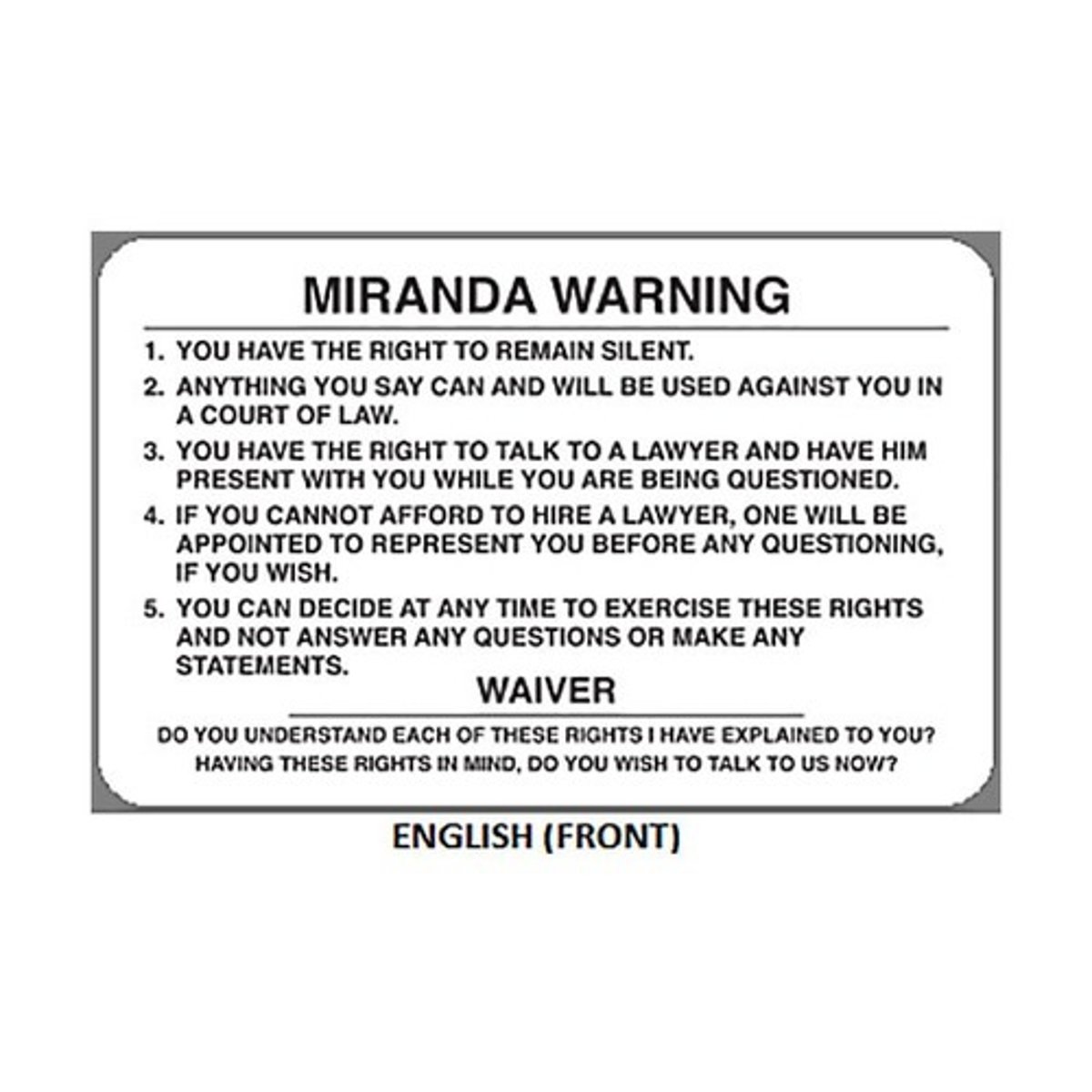The Bill of Rights
1/30
There's no tags or description
Looks like no tags are added yet.
Name | Mastery | Learn | Test | Matching | Spaced |
|---|
No study sessions yet.
31 Terms
Bill of Rights
1st 10 Amendments to the Constitution
1st Amendment
Freedom of speech, press, assembly, religion and petition
Schenk vs U S (1919)
The Supreme Court invented the famous "clear and present danger" test to determine when a state could constitutionally limit an individual's free speech rights under the First Amendment.
2nd Amendment
State can maintain a militia; National and state governments can and do regulate private possession and use of firearms
3rd Amendment
Right to privacy in one's home;
Private citizens do not have to house troops
4th Amendment
Individual right to privacy unless law enforcement has the proper warrant obtained with probable cause for search and seizure
Reasonable Suspicion
Well- founded articulable suspicion of criminal activity based on officer training and experience; belief that a person is about to commit a crime (Person swerving in a car)
Probable Cause
Probable cause: facts and circumstances sufficient to warrant a reasonable belief that the suspect is in possession of contraband or other evidence that would support an arrest (Fertive movement once stopped)
Unadmissable Evidence
Evidence from unlawful search cannot be used in court
5th Amendment
A person has to be indicted (charges listed) to be tried for a serious crime
A person has the right to due process (federal government must act fairly and in accordance with established rules in all it does)
No double jeopardy (you can't be tried twice for the same crime)
A person is protected against self- incrimination (does not have to tell on self; spouse)
Eminent domain (the power of government to take private property for public use; government must pay fair price for property and must use it to benefit the public)
Miranda vs Arizona (1966)
You must be advised of your rights before being questioned by law enforcement if you are suspected of a crime (Miranda Warning)
Miranda Warning

6th Amendment
Informed of charges
Speedy trial; person cannot be held for an unnecessarily long time while awaiting trial Trial by impartial jury (can ask for judge trial)
Favorable witnesses
Cross examination of witnesses
Right to an attorney)
Gideon v Wainwright (1963)
You must be provided with a lawyer if you are unable to afford one
7th Amendment
A trial by jury when dispute between persons for more than $20 occurs Can waive jury trial for bench trial (TV court)
8th Amendment
Bail imposed must be reasonably related to the seriousness of the crime; Forbids punishment that is too harsh for the crime
9th Amendment
People have unenumerated (too many to number) rights;
People hold other rights that may not be set in the Constitutio
10th Amendment
All powers not granted to the national government belong to the States
Federalists
For the ratification of the Constitution
Anti-Federalists
Against ratification of the constitution
Popular Sovereignty
the people establish government and give it power
Limited Government
government powers are restricted to protect individual rights
Separation of Powers
division of power between the Legislative, Executive and Judicial Branches to prevent abuse of power
Checks and Balances
each branch has the authority to check or restrain the use of power by the other branches
Judicial Review
the Supreme Court can strike down laws and other government actions not constitutional
Federalism
the division of power between the federal and state governments
1st method of formally amending Constitution
2/3 vote in each house of Congress
Ratified by 3/4 State legislatures
26 of 27 Amendments adopted
2nd method of formally amending Constitution
Amendment proposed by Congress
Ratified by convention in 3/4 States
21st Amendment
Informal ways to amend Constitution
Basic Legislation
Executive Action
Court Decisions
Party Practices: Electoral College, National Conventions
Custom: Cabinet, Senatorial Courtesy
With freedoms
comes responsibility
Exercise of freedom
may have consequences